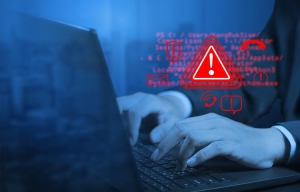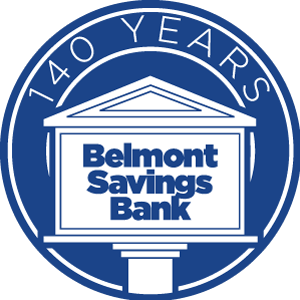-
Personal
Personal Checking
Personal Loans
Savings Accounts
 BSB First Responder Special Mortgage Program
BSB First Responder Special Mortgage Program Benefit from 0% down payment and 100% financing, with no PMI.
Learn More -
Business
Business Banking
Business Loans
 Increase your purchasing power with a Business Credit Card
Increase your purchasing power with a Business Credit CardBSB Rewards Platinum Visa® credit card earns unlimited rewards on every purchase, every day.
Apply Today! -
Online Services
Online Services
 Send and receive money with Zelle®
Send and receive money with Zelle®Zelle® is a convenient way to send and receive money with friends and family.
Learn More -
Resource Center
Resource Center
 Cybersecurity Awareness
Cybersecurity AwarenessAs technology advances, the need for cybersecurity education is greater than ever. Check out our helpful tips to stay prepared!
Learn More -
About
About Us
 Giving Back to our Community
Giving Back to our CommunityBSB believes in supporting our local businesses and non-profits. Learn how we have made an impact in the Ohio Valley today.
Learn More - Bank Online
Safe Banking Tips
We are committed to helping ensure the safety of your financial identity, your financial assets, and your personal information, but we need your help. We ask that you observe the following best practices.
Personal
Business
Customer Obligations
Online Security
Identity Theft
- Never give out personal information, passwords or PIN numbers over the Internet. The bank will not call or email you for your information. Do not disclose any part of your login credentials to anyone - especially while on the telephone or while using the Internet.
- Do not leave your account information in an area accessible by others. This includes not leaving your computer unattended while connected to Belmont Savings Bank Online Banking.
- Please remember many e-mail systems are not secure. Do not send your password or sensitive account information in any public or general e-mail system.
- You are responsible for the security of your computer. You should install a personal firewall or use firewall software on your computer and/or your network. Also purchase and install anti-virus and anti-spyware software and perform regular scans of your computer.
- Change your passwords on a regular basis and choose passwords that are difficult to guess. Include punctuation, special characters, numbers and upper and lower-case letters when creating a password.
- Don't write down your password. Memorize it.
- When you are finished accessing Online Banking, make sure you logout and close the browser.
- Beware of Phishing! Phishing involves the use of seemingly legitimate email messages and websites to trick customers into disclosing sensitive information, such as bank account information, social security numbers, credit card numbers, passwords, and personal identification numbers (PINS). Some fraudulent email messages request the customer to update or validate their financial or personal information in order to maintain their accounts. But what it is really doing is directing to a fake website that may look like the website of a legitimate business.
- Review and reconcile your accounts on a daily basis and report any suspicious activity to Belmont Savings Bank immediately.
- Establish internal controls, set transaction limitations, and impose a dual control environment.
- Prohibit the use of “shared” usernames and passwords.
- Always verify use of a secure session by noting the https (not http) in the browser’s web address bar. You can also look for the lock either next to the address bar or at the bottom right-hand corner of your browser.
- If you believe that your accounts or security codes have been compromised, contact the bank immediately at 740-676-1165.
When signing up for many online accounts, security questions are sometimes required. The questions are used to authenticate the user, recover or reset a password. However, due to the vast amounts of personal info available on social media and the internet, many of those questions can be easily guessed.
If a website requires security questions, don't answer them truthfully. Instead, use something unique, random, and treat it like a strong password. Avoid common words or phrases, and the longer, the better. It would be best to use a random mix of uppercase, lowercase, numbers & special characters, or a passphrase, which is a sentence like a string of random words. If you must answer more than one security question, you could use the same complicated answer for each question to make it easier to manage.
You should always limit the amount of personal information you post on Social Media.
Online Social Media quizzes should never be completed. Those seemingly harmless quizzes are sometimes apps designed to gain access to your personal information. In many cases, data mining does not stop when you finish taking the quiz. Once an app or website has connected to your Facebook account, the developer can maintain that connection for months and continue to request information about your profile and posts.
What is the harm in answering a few questions to prove how well you know a friend or fun facts about yourself? Some of the mixed questions are common security questions for Online Banking, credit cards, and other personal accounts. Those questions that get shared by many of your friends may very well have originated by fraudsters wanting to steal identities, hack online banking accounts, or gather enough information to be able to impersonate unaware Facebook users.
Be mindful of social engineering. Social engineering happens when a malicious actor manipulates someone on the internet into providing confidential information. It usually occurs when they impersonate a friend or family member on social media. You should never accept friend requests from people you are already connected to or don't know. It is wise to remove personal details from your profile like phone number or address.
Review your privacy settings and be strict about what info you share.
What is identity theft?
Identity theft occurs when skilled identity thieves, without your knowledge, gain access to a piece of your non-public personal information and use it to commit fraud.
How does identity theft occur?
Access to your personal information is gained through a variety of means. For example:
- Stealing records from businesses or other institutions.
- Rummaging through your trash (dumpster diving).
- Obtaining credit reports by abusing access or posing as an employer.
- Stealing credit and debit card numbers.
- Stealing wallets or purses containing identification.
- Completing change of address forms to divert your mail to another location.
- Stealing personal information from your home.
- Scamming information from you by posing as a legitimate business person.
What should I do if I think I could be a victim of identity theft?
- Notify your banking institution immediately.
- Close any accounts that have been tampered with or opened fraudulently.
- Place a fraud alert on your credit reports and review your credit reports..
- File a report with your local police or the police in the community where the identity theft took place.
- File a complaint with the Federal Trade Commission (FTC).
You may also call 1-877-IDTHEFT, the Federal Trade Commission's toll-free ID Theft Hotlink, where counselors help consumers who want or need more information about dealing with the consequences of identity theft.
For additional up-to-date information on how to protect yourself from identity theft, please visit the FDIC or the Federal Trade Commission websites.
You should also contact the three major credit bureaus and have them place a fraud alert on your file.
Equifax
(888) 766-0008
www.equifax.com
Experian
(888) 397-3742
www.experian.com
TransUnion
(800) 680-7289
www.transunion.com
Tips to help prevent Tax ID Fraud
Tax identity fraud takes place when a criminal files a false tax return using a stolen Social Security number in order to fraudulently claim the refund. Identity thieves generally file false claims early in the year and victims are unaware until they file a return and learn one has already been filed in their name.
Belmont Savings Bank is offering the following tips to help prevent tax identity fraud:
- File early. File your tax return as soon as you are able - giving criminals less time to use your information to file a false return.
- File on a protected Wi-Fi network. If you are using an online service to file your return, be sure you’re connected to a password-protected personal network. Avoid using public networks like a Wi-Fi hotspot at a coffee shop.
- Use a secure mailbox. If you are filing by mail, drop your tax return at the post office or an official postal box instead of your mailbox at home. Some criminals look for completed tax return forms in home mailboxes during tax season.
- Find a tax preparer you trust. If you are planning to hire someone to do your taxes, get recommendations and research a tax preparer thoroughly before handing over all your financial information.
- Shred what you do not need. Once you have completed your tax return, shred the sensitive documents that you no longer need and safely file the ones you do.
- Beware of phishing scams by email, text, or phone. Scammers may try to solicit sensitive information by impersonating the IRS. Know that the IRS will not contact you by email, text, or social media. If the IRS needs information, they will contact you by mail first.
- Keep an eye out for missing mail. Fraudsters look for W-2s, tax refunds or other mail containing your financial information. If you do not receive your W-2s, and your employer indicates they’ve been mailed, or it looks like it has been previously opened upon delivery, contact the IRS immediately.
If you believe you are a victim of tax identity theft or if the IRS denies your tax return because one has previously been filed under your name, alert the IRS Identity Protection Specialized Unit at 1-800-908-4490.
Social Engineering
Online Fraud
Online Safety
Online Crime Prevention Tips
Skimming
What is Skimming?
Skimming is a method used by thieves to capture data from the magnetic strip on the back of the ATM/Debit Card. Sometimes thieves will install a small, almost unnoticeable "skimmer" to the machine that can read the magnetic strip on a card. The device can also be rigged to "capture" your card, holding onto it instead of just reading it. Other times, workers in retail establishments may utilize a handheld skimmer.
Where does skimming occur?
Skimming can occur at gas pumps, ATM's, retail outlets, etc. The skimming devices are very small and when used on an outside source, like an ATM or a gas pump, are normally only attached for a few hours.
How to protect yourself?
- Raise your awareness when you are using your card
- Inspect the ATM, gas pump, or credit card reader before using it. Look for any devices on the face of it where you slide your card through.
- If anything looks suspicious like a change in the appearance of the PIN pad, something inserted in the magnetic strip reader, don't use it and advise us right away.
- Notify your financial institution of any ATM that is not working correctly or acting strange.
- Make sure your card stays in sight if possible. If you are in a retail store, and they need to go to another counter to run the card, follow them.
- Review your receipts and check them carefully against your statements.
Social Security Number Tips
5 Don'ts to help protect your SSN
- Do not carry your SSN card with you daily or any documents that display your SSN - Keep them in a safe place and only bring them with you when you need them.
- Do not put your SSN on your checks or other identifying documents.
- Do not give out your SSN (or any other personal information) if YOU did not initiate the conversation with the contact.
- Do not use your SSN as an ID number on payroll or any other documents.
- Do not use your SSN as your pin or the last four digits as a pin.
Phishing
What is it?
Phishing is an attempt to acquire sensitive information such as usernames, passwords, online banking information, credit or debit card details for malicious reasons.
You could receive an email or a text that appears to be from a credible source says something like this:
- We suspect an unauthorized transaction on your account. To ensure your account is not compromised, please click the link below and confirm your identity.
- Please review your account with a link that appears credible.
What should you do?
Do not click any links, do not reply, and do not give them any personal information. You can also forward phishing emails to spam@uce.gov AND to the company, bank or organization that is impersonated in the text or email.
Protect yourself.
If you have clicked on a link in a phishing text or email and submitted your Belmont Savings Bank account or debit card information, please contact us at 740-676-1165. We will assist you in protecting yourself from fraud.
For more information about phishing, visit https://www.consumer.ftc.gov/articles/0003-phishing
Protecting Your Privacy
Marketing Lists
To limit unsolicited marketing material you may receive from various companies through the mail, telephone, or e-mail, write the Direct Marketing Association at the appropriate address listed below. You must provide your name, address, and telephone number with your request (visit the Direct Marketing Association for more information).
Mail Preference Service
Data & Marketing Association
PO Box 643
Carmel, NY 10512
or online at www.dmachoice.org
E-Mail Preference Service
https://www.ims-dm.com/cgi/optoutemps.php
Do Not Call
www.donotcall.gov
1 (888) 382-1222
To opt out of prescreened credit card offers, call: 1 (888) 567-8688
Online Dating Scams
Social media networks and dating websites have become increasingly popular tools for meeting and communicating. Unfortunately, fraudsters have capitalized on this trend and often create fake profiles to lure in victims, establish relationships and eventually extort money. Has an online love interest asked you for money? If so, that is most likely a scam. If you are concerned that you or a loved one are being scammed, we recommend taking the following precautions:
- Slow down – and talk to someone you trust. Do not let a scammer rush you.
- Never wire money, put money on a gift or cash reload card, or send cash to an online love interest. You will not get it back.
- Contact your bank right away if you think you have sent money to a scammer.
Report your experience to:
- The online dating site
- FTC
- FBI

.jpeg)